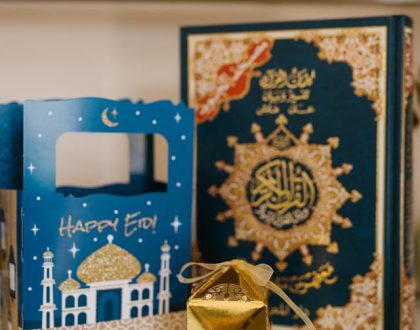(2:21) If Allah does not need our worship, why do we worship Him?

Why should we worship Allah?
Allah Almighty does not need our worship. So why worship Him?
Do we pray because we know Allah Almighty or do we know Allah Almighty because we pray?
‘O people, worship your Lord who created you and those before you, so that you may become God-fearing’ (2:21)
Worship is the key to knowing Allah. It is a cycle – the more we worship, the more we know Him, and the more we know Him, the more we are inclined to worship Him. Indeed our raison d’être is to worship Allah Almighty.
There are people who say that they believe in Allah in their heart but they do not need to worship Him. This is akin to saying I love my parents in my heart, but I don’t need to call them. Worship is the connection between Allah Almighty and mankind. Though He is nearer to us than our jugular vein, He requires us to make a formal and conscious effort as well as devote time to focus our minds on Him alone.
Though Allah Almighty Himself says that nothing we can do either benefits or harms Him, this ayah is an explicit command to worship Him. It is not a choice left to us whether we feel like it or not. Though we may feel connected to Him as we feel connected to our children, being connected while multi-tasking is not the same as spending ‘quality time’ with either Allah Almighty or our children. So we are required to make the effort and give our full attention to Allah Almighty at specific times during the day.
Indeed, it is such a basic obligation that He expects worship from all of mankind – not exclusively believers. It is one of twenty ayahs in which Allah Almighty appeals to every single person in existence. After all Allah Almighty provides to all, not just believers.
Allah Almighty even goes on to give us reasons why we should do this. They fall into three categories:
- Creation – Ejaad
- He reminds us that He created us. Just as we have a special bond with our parents we have an even closer bond with Him who designed and fashioned us.
- He reminds us that He created our ancestors – just as someone saying they knew our parents or grandparents endears us to them, Allah Almighty reminds us that He is not just our Lord but the Lord of all the generations who preceded us.
- Sustenance – Imdad
- He uses the word ‘Rabb’ to reinforce the fact that He has nurtured us – just as someone who looked after us from the moment we were born is special to us, Allah Almighty has been watching over us and caring for us before we can even remember. Rabb is the One who looks after you even for small matters. The words Murabbi (the one who provides ‘tarbiyya’) and tarbiyya (upbringing) come from the same root.
- Just as we have shelter, which protects us from the elements and other threats, Allah Almighty has given us the roof over our heads, the atmosphere which protects us from the sun – as well as the earth, which is the foundation and generates all the produce we have at our disposal.
- He provided us with everything we have. Our debt to Him just cannot be quantified.
- Obligations – Taqleef
- Worshipping Him benefits us by giving us ‘taqwa’ which literally means a shield, hence gaining closeness to Allah Almighty gives us protection. Obligations are an integral part of building our relationship and though they involve an element of burden and hardship, we can reach a point where the burden – whether it is prayer or fasting for example is something that brings us satisfaction and serenity in our lives.
Allah Almighty is Al Ghani. He needs no one but He is needed by all. Thus when He calls upon us, we need to listen. When we listen, we need to respond. Worshipping strengthens our bond and the more we put in, the more we benefit in every possible way.
How do we worship Allah Almighty?
In Surah Al Imran, Allah Almighty commanded Maryam:
‘O Maryam, stand in devotion to your Lord and prostrate yourself and bow down in Ruku with those who bow.’ (3:43)
Maryam had already been dedicated to the service of the Allah and spent her time in devotion to Him. Maryam is being asked to join the public and not remain secluded. Interestingly, we have here permission and even encouragement for women to pray in a masjid for community spirit to strengthen. When women are prevented from going to the masjid, it is not an notion originating from Islam, but a decision by men. Aisha (may Allah be pleased with her) and other wives of the Prophet (peace be on him) would pray fajr in the masjid.
In this ayah, Allah Almighty confirms that worship entails both the act of standing in prayer, as well as bowing down. Both are postures that show respect. (Though the form of our salah was taught to us by the Prophet (peace be on him) we can see from this that prayer even before this time involved a component of standing and bowing). We also see that there is public and private dimension to worship. There are benefits of praying in seclusion as well as in congregation.
Worshipping Allah does not stop with the salah, and is a continuous action as long as we are fulfilling our duties towards ourselves, our families and our community with the correct intention and etiquette. Of course, neither is exclusive of the other, so we cannot choose to do one and neglect the other.
Recommended Posts

When can you fast after Eid?
April 07, 2024

Is it permissible to take out a student loan?
April 02, 2024


